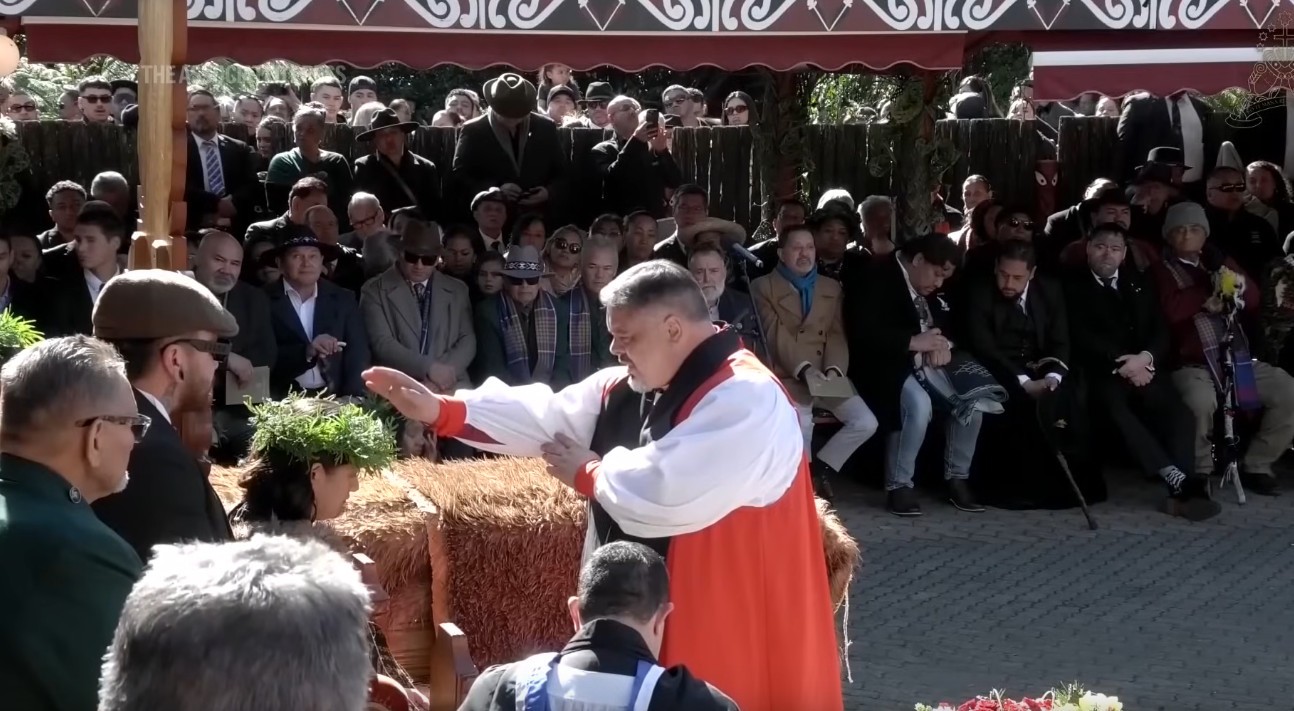The establishment of the Maori King Movement was inspired greatly by the English monarchy. Young Maori had visited England and returned with a simple idea: if the divided tribes could unite under a single man then they could halt their decline and grow to be strong like the British.
The monarchy was founded by Christian converts who had studied at the feet of missionaries. The flags they flew were all Christian flags emblazoned with the Cross of St George. Even today the monarchs are "crowned" with the Bible and anointed by the Anglican Archbishop of Aotearoa.
Back in the last 1850s, there were many problems the government in Auckland was unwilling and unable to deal with. The lack of haste in which law and order was established undermined faith in the government. The issues of settlers and their representation took priority, not unsurprisingly, leaving chiefs out on their own. The acquisition of Maori land was the primary way of funding the government as there was little support from London. While many chiefs were eager to sell and dispossess their people of an inheritance, other chiefs were starting to see the problem. The education and advice the local missionaries like Thomas Grace and Benjamin Ashwell had given them was starting to take hold.
The Maori Land League had formed in Taranaki to block sales and this soon led to the King Movement in the Waikato.
It failed to unite Maori as most sided with the Governor. Joining the King Movement was interpreted as an act of treason, even though many Waitako rightly argued they had had nothing to do with the treaty their ancient Ngapuhi enemies had signed with the Queen. The rest is history as Governor Grey quickly came to the conclusion that an invasion of the Waikato was the only way to break the back of this threat to British sovereignty. The King Movement saw their subsequent exile into the areas we still know as "King Country" as one of the Israelites wandering the desert.
The reason the King Movement persists is because its ideas and goals were generally correct. The Kingites recognised that for the Maori people to survive as a distinct ethnicity they would need to be united, put aside tribal differences, maintain ownership of their land, and have a monarch who could speak and act in the best interest of his (or her) people.
The liberal assimilationist movement of the 19th century wasn't completely wrong either. They recognised that Maori absorption into the Anglo-Saxon settler stock would be the easiest way to bring prosperity and civilisation to all New Zealand. That outcome is quite a common theme in history, although historically it was done in a more violent way. In the end, neither was completely dominant and so we have what we have today with a little bit of a controversy on how to proceed between the assimilationists and the nationalists.
I pray for a revival of Christianity here in New Zealand. It was the embrace of Christianity that led to Maori discovering and pursuing their own identity in the face of all odds that would have seen them fade away into the history books as many have before them. It was Christianity at the foundation of both the New Zealand state and the King Movement. Perhaps the only similarity between the coronations of King Charles III of New Zealand and Queen Ngā Wai Hono i te Pō of the Kingitanga is that they are both Christian monarchs who represent distinctly Christian peoples.
